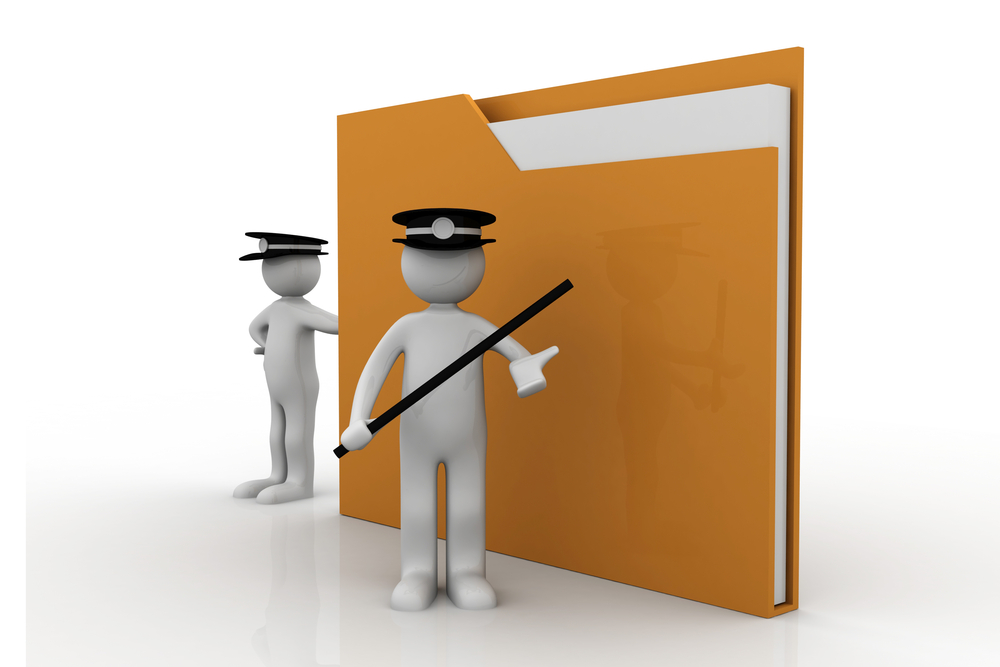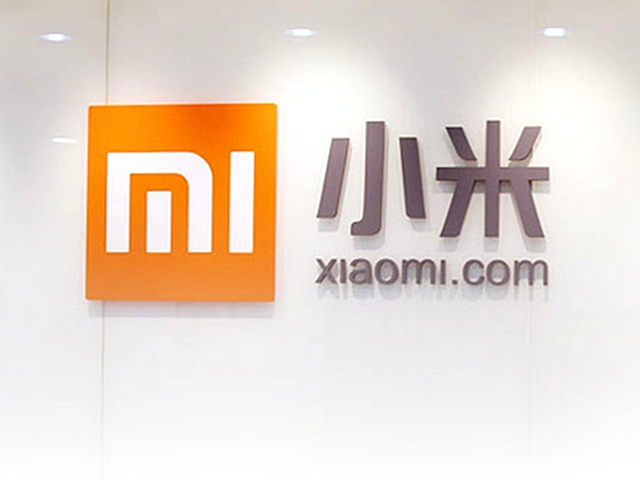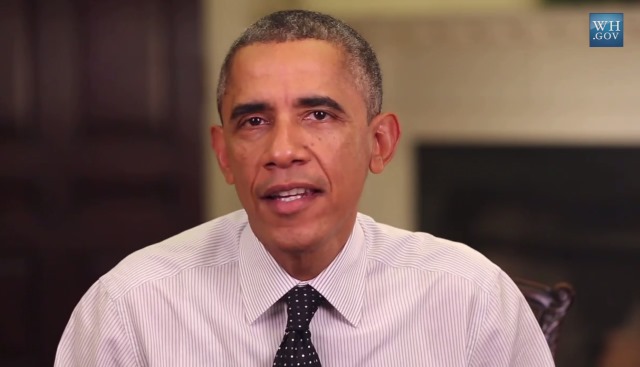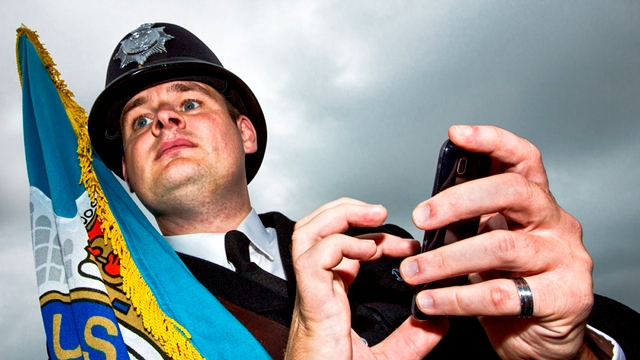
Europe moves to end geo-blocking online content
While the internet is supposed to be an open-access resource, there is a great deal of content which can only be accessed in certain parts of the world. To comply with licensing rules, broadcasters in particular will often restrict access to their services to specific countries, but in Europe there are plans to bring such geo-blocking to an end.
Described as "a discriminatory practice used for commercial reasons" geo-blocking is derided by the European Commission as little more than a money-making venture. The aim is to create what has been dubbed a Digital Single Market, breaking down barriers and simplifying regulation.

Google responds to Wall Street Journal's FTC-report hatchet
Today, Rachel Whetstone, Google's senior vice president of communications and policy, asks what has been on my mind since a stunning scoop set the Wall Street Journal against the Federal Trade Commission and the search and information giant. As I explained in an analysis of the news reporting, the story is flush with insinuation and veiled accusation, bereft of context.
Among my more serious concerns: Journal-parent News Corp's ongoing tug-a-war with Google's business model and its impact on paid content. Both entities likely would benefit by any means that trustbusters could crimp Google. The scoop's timing and tone look like they intend to influence European Union public policy. Ms. Whetstone's response is brilliant, because it gets to the point: Conflict of interest taints the Journal's credibility and impartiality. She rightly observes: "We understand you have a new found love of the regulatory process, especially in Europe".

DreamHost reveals government and legal requests
We all know that web hosting companies receive legal requests ranging from copyright take down notices to search warrants. But how many such requests do they receive and where do they come from?
US hosting company DreamHost has released a first of its kind transparency report detailing all of the requests it's received in the last year. The three most common types are DCMA/Copyright notices, government requests -- such as those related to criminal investigations -- and requests to remove or censor content, usually related to defamation or privacy suits.

Entrepreneurism and the politics of hope
I’m an older guy with younger kids so to some extent I live vicariously through my friends, many of whom have children who are now entering the work force and some of those children can’t find jobs. We’re not in a recession, the economy is expanding, new positions are supposedly being added every day, but the sons and daughters of my friends aren’t generally getting those jobs so they are staying in school or going back to school, joining the Peace Corps., whatever. Everyone is rattled by this. Kids don’t want to move home and parents don’t want to have them move home. Student debt continues to increase. Everyone wants to get on with the lives they thought they were promised -- the lives they’d signed up for and earned.
What changed?

Apple's new €1.7 billion European data centers will power cloud services
Colder regions make great places for building data centers. Operators can leverage the colder air outside to cool those hot servers, without relying much on costly tools like air conditioners and the like. When we're talking about thousands of servers all running in the same place, the savings are substantial. And so is the positive impact on the environment, thanks to a healthy decrease in energy requirements and emissions.
It should come as no surprise that Apple has announced Denmark and Ireland as the locations of choice for its two new European data centers. The two countries are also favored by other players in the tech industry, like Google and Microsoft. Apple's new data centers will power online services for European customers.

New FAA rules could ground Amazon's package delivery drones, require operators to get certified
We always knew that the US government would have a very tough time stopping civilians from using drones -- formally known as unmanned aerial vehicles (UAVs). First of all, they are easily available and can be had for very little money. You can order one today from Amazon for less than $100. And, second, flying does not require the operator to have any special skills, as proven by numerous videos posted by enthusiasts all across YouTube.
So, instead of taking on that Herculean task, the Federal Aviation Administration has come up with a proposed set of rules that aim to regulate the use of small UAVs, weighing less than 55 lbs (or 25 kg), by the civilian sector. And under this new set of rules, Amazon might have to ground its package delivery drones for good. What's more, operators will have to meet certain requirements just to get theirs up from the ground.

Apple to EU customers: Abusing our returns policy? There's a cure for that!
Apple has a system in place to deal with EU customers who are abusing its new returns policy, which it introduced in late-December to comply with local regulations. What is it? Well, those in question have to agree, upon future purchases, that they will no longer be able to return -- basically, ask refunds for -- digital content, once it is downloaded (or streamed).
Apple allows its EU customers to return digital content -- apps, music, and videos -- within 14 days after purchase, which has been interpreted by many as a green light to unlimited refunds. Mal-intended users could seemingly buy, say, games, enjoy them until right before the returns period ends, then ask for refunds, and repeat the process as they please. Such a policy could, indeed, negatively impact the bottom line of content creators, but it is, however, not the case.

That iPhone 6 storage lawsuit is so bogus I just laugh
Oh the irony! I got up yesterday morning planning to write a version of the post you read now, choosing instead to look back at readers' life-changing tech. The trigger: Motorola starting the New Year with a 64GB Moto X model and my previous day's personal tech devices wrap-up, which got me to thinking abut smartphone differentiation. Processing power, graphics chips, and the like are passé. Who really cares but a minority of gadget geeks? But storage matters to everyone, and Apple gets it—as iPhone 6 and 6 Plus capacities demonstrate.
My feeds are full of reports this morning about a lawsuit filed against Apple alleging that iOS 8 consumes too much storage and, as such, the company misrepresents the amount available. I would have looked so smart writing yesterday about how much Apple gives that competitors don't. That's okay, now my analysis has a news hook. The point, for people reading no more than two paragraphs of any story: iPhone 6 capacities outclass competitors, and the problem of operating systems consuming much of available storage isn't new or exclusive to the fruit-logo company. Just look to Google and Microsoft, for example.

Online freedom is declining
A new report from Freedom House, a watchdog dedicated to promoting the cause of freedom across the globe, has been published with some interesting observations on how free various nations are in terms of their internet access.
The Freedom on the Net 2014 report, spotted by Mashable, involved evaluating some 65 countries, and the bad news is that over half of them, 36 to be precise, actually dipped in their levels of online freedom between May 2013 and 2014.

Xiaomi infringes Ericsson patents in India, local court bans sales until February 2015
Xiaomi has enjoyed great success in its home market of China, becoming the largest vendor in the country in Q2 2014, beating Samsung for the title. The company also was the third-largest smartphone maker worldwide in Q3 2014. And things appear to only be looking up for Xiaomi, with shipments expected to grow at a still rapid pace.
One of the reasons why Xiaomi has managed to reach the top spot in its home country is the permissive local legal system, in relation to patents. The company hasn't really been challenged locally by any of the big non-Chinese players, as quite likely any suits filed against it for patent infringement would be lost by the plaintiffs. Western companies have been dealing with this problem for (too) many years. However, as Xiaomi expands into India, it has to deal with a different legal system, one which just sided with Ericsson in a case of patent infringement. The outcome?

Global Airport Action initiative targets credit card fraudsters
Global law enforcement agencies and the airline, travel and credit card industries have joined forces in a major concerted action to combat online fraud.
The operation, organized via three coordination centers at Europol, in The Hague, Interpol in Singapore and Ameripol in Bogota, and involving over 60 airlines and 45 countries at more than 80 airports across the world, saw 281 suspicious transactions reported and 118 individuals arrested.

UK High Court orders ISPs to block a further 53 piracy sites
If you live in the UK it’s getting ever harder to access pirated music and movies on the web. After years of trying to defeat pirates in various ways, including suing downloaders, representatives of rights holders have found that the easiest and most effective solution is to take their complaints to the high court and ask for the infringing sites to be blocked.
The process, which started with the banning of The Pirate Bay in 2012, is now so straightforward for the likes of the Motion Picture Association and BPI (British Phonographic Industry), that whole batches of sites are getting outlawed at a time. Yesterday there were 40 copyright infringing sites blocked in the UK, today that number more than doubles to 93.

What you should know about the E-Label Act
The FCC label on radio-equipped devices sold in US has been mandatory since 1973. By now, we have gotten used to seeing it, no doubt because there is usually nothing that we can do to hide it. But, as technology evolves, its physical presence is bound to cause some serious problems (not to mention that it spoils the look of some gorgeous devices).
However, in mid-July, a new bill, called the E-Label Act, was introduced to give companies that operate in US the option to feature an electronic FCC label on their radio-equipped products. And, after passing through Senate and Congress, President Obama just signed it. Here is what you should know about it.

Obama enters net neutrality debate with four rules for a free and open internet
The net neutrality debate has been raging for some time and Barack Obama has stepped into the fray, voicing his support for a free and open internet. More than this, the president is calling for broadband to be reclassified under Title II of the Telecommunications Act which would give the FCC greater powers of regulation. His statement has come as bad news for cable companies who have expressed a desire to create a two-tiered internet.
But while some providers have suggested that they would like to be able to offer a faster service to customers willing and able to pay more money each month, Obama is calling for a largely unfettered internet. As well as eliminating the idea of fast lanes, he calls for no blocking of legal content, no throttling, and greater ISP transparency.

British criminals are remotely wiping mobile devices while in police custody
Offenders are using software to remotely wipe tablets and smartphones confiscated by the police so they cannot be used as evidence in criminal cases.
Police forces in Cambridgeshire, Derbyshire, Nottingham and Durham all admitted to the BBC that seized devices have been remotely "wiped" of all data to prevent it being used as evidence in court.
